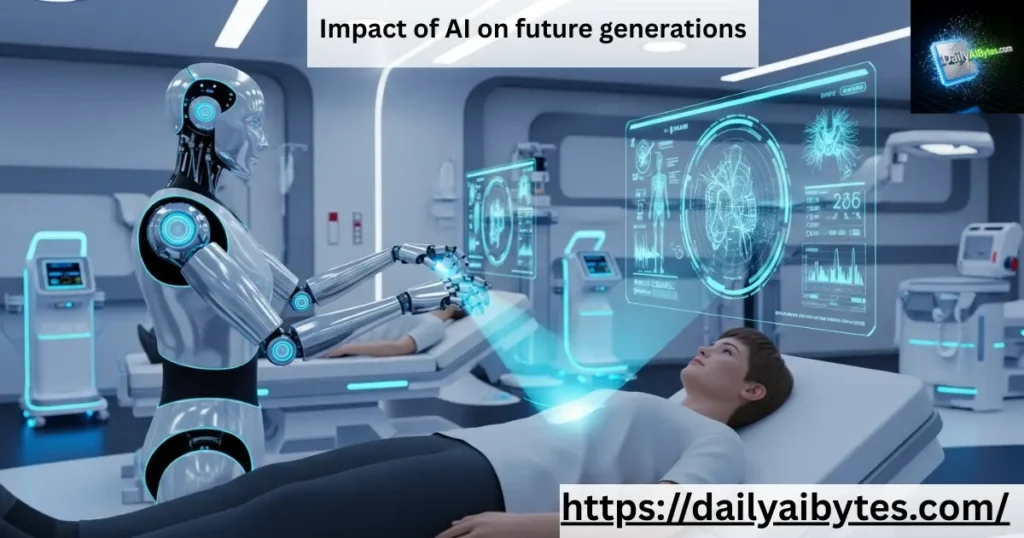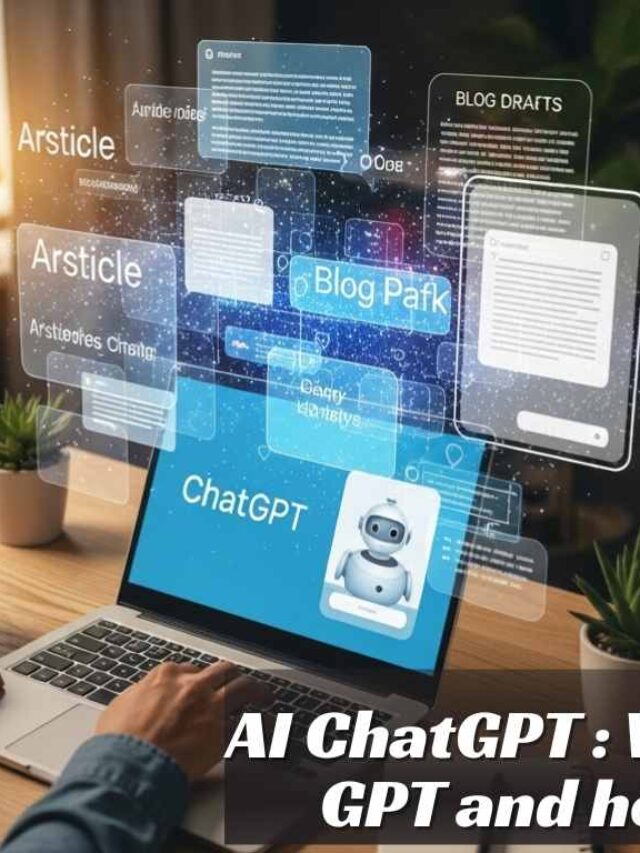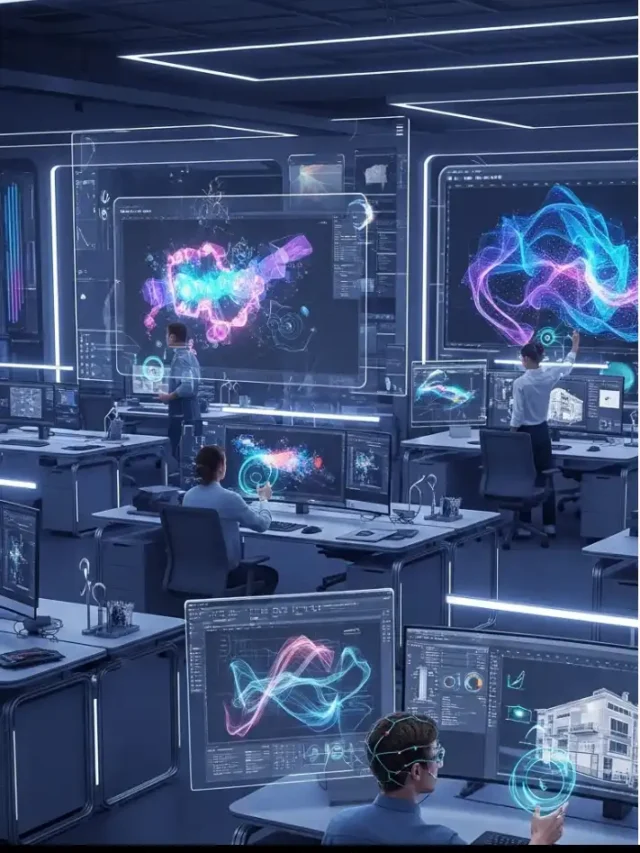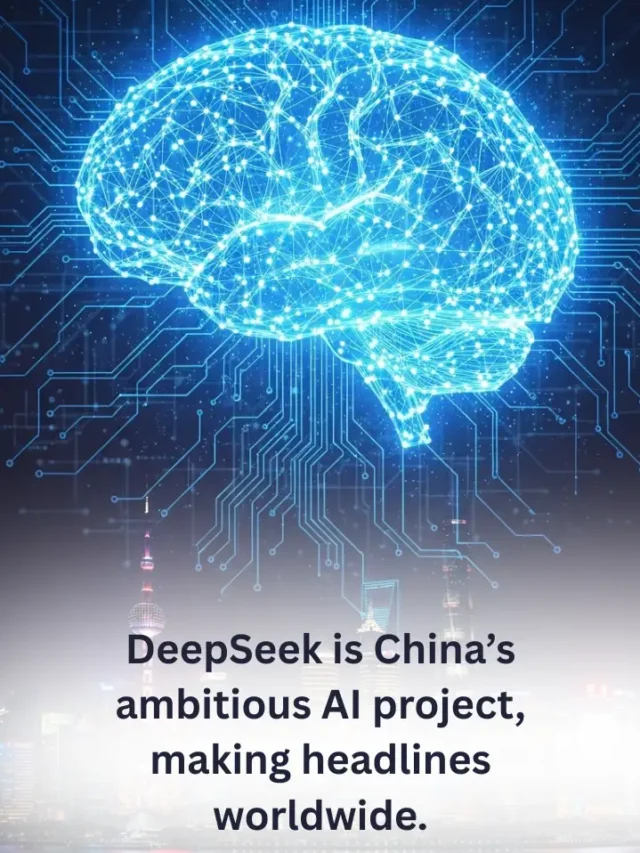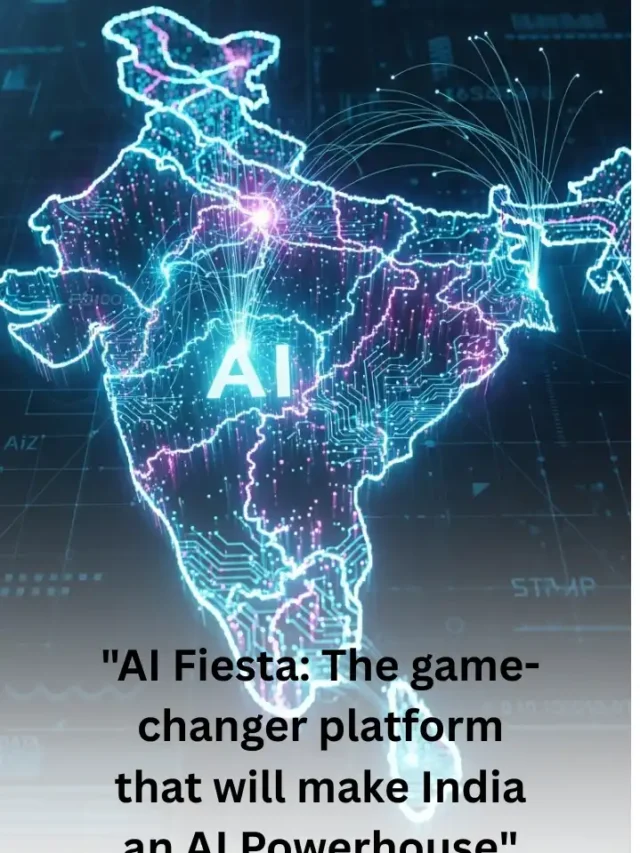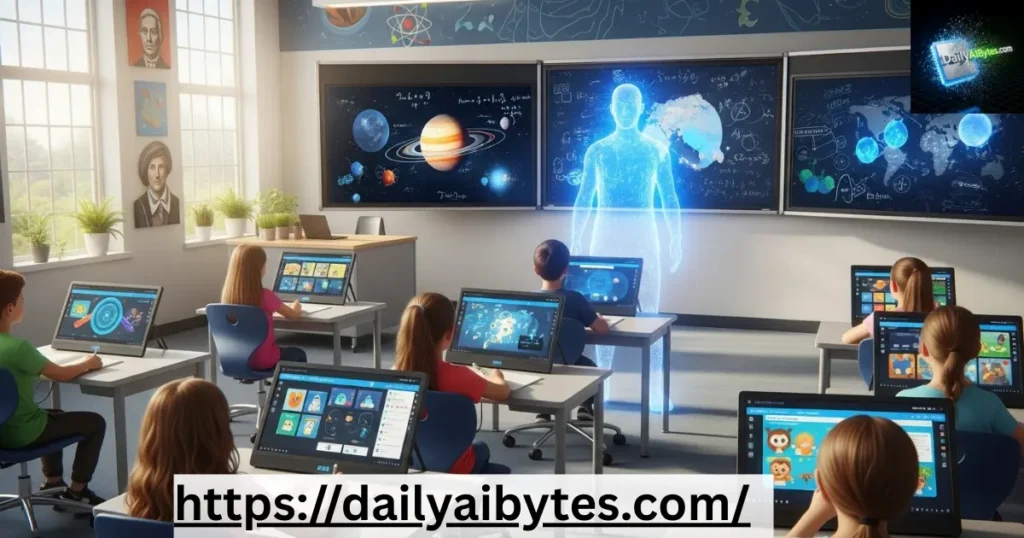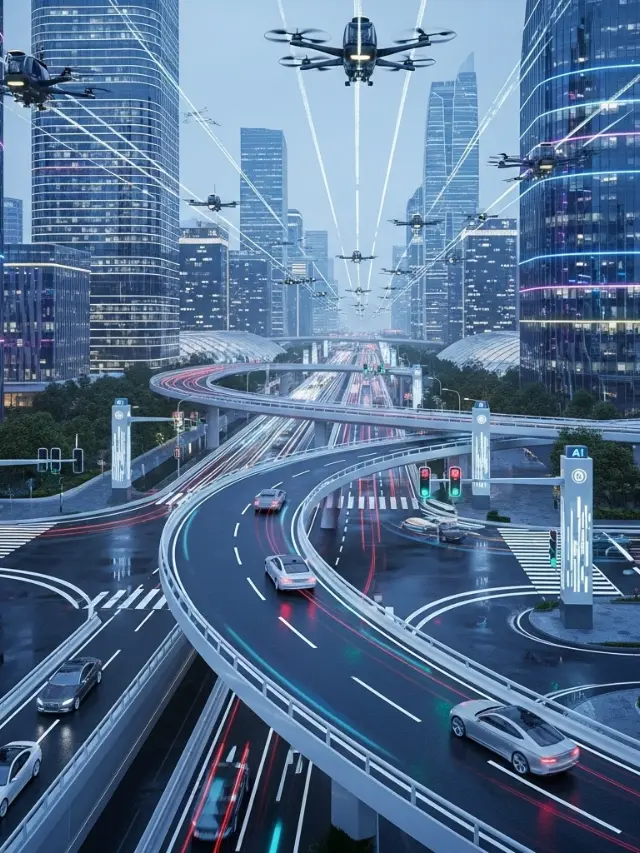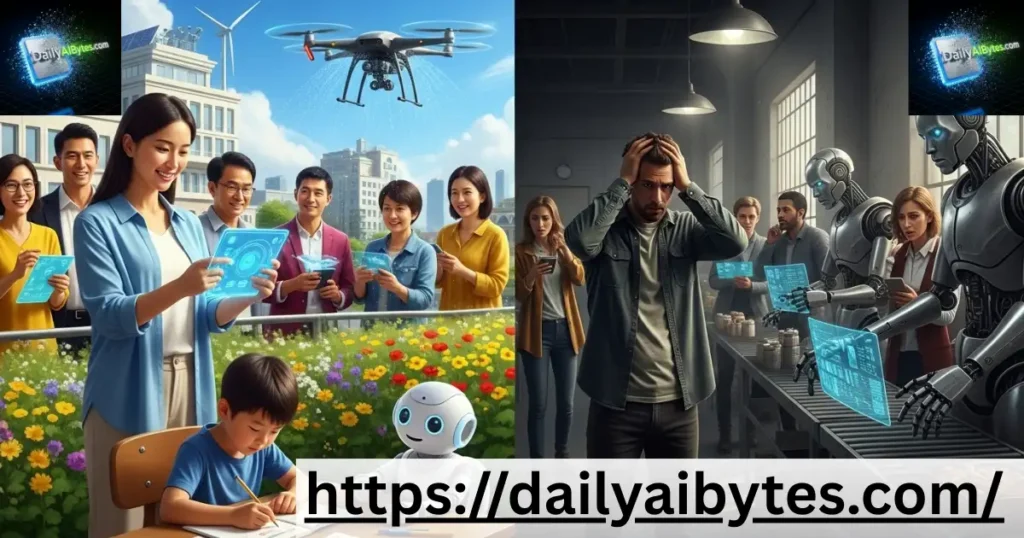AI is everywhere nowadays – in phones, computers, and even in our everyday lives. But the question is how will we see AI in future? How will it be used? What are its advantages and disadvantages? Will it be paid or free? And what will be its impact on future generations?
How will we see AI in future?
In the future, we will see AI as a friend who helps us. Today AI is just a machine, but in the coming years it will think and feel like humans.
Scientists say that by 2050 AI will become so smart that it will be able to take decisions on its own. For example, just like robots are seen in movies. But in reality, we will use AI as a tool that will make our lives easier.
Many experts believe that AI will become superintelligent, meaning more intelligent than humans. People like Elon Musk say that AI will change the world, but caution has to be taken.
We will see AI as a companion who works, learns, and even understands emotions. For example, AI doctor who will diagnose disease, or AI teacher who will teach children. But some people fear that AI will replace humans.
Overall, in the future we will see AI as a revolutionary technology, which will be full of goodness and challenges.
How will AI be used in the future?
AI will be used in every field in the future. First of all in health: AI will help doctors. For example, machines will be more accurate in detecting cancer. Robots will perform surgery, and medicines will be made automatically.
In education, AI will provide personalized education. It will teach each child in a different way. Online courses will be run by AI, and homework will be checked automatically.
In transportation: Self-driving cars will be common. Traffic jams will be less, and accidents will decrease. AI will control trains and planes.
In agriculture: AI will help grow crops. It will forecast the weather, and protect against pests. Farmers will watch the fields with drones.
In business: AI will provide customer service. Chatbots will work 24/7. In marketing, AI will create advertisements.
In entertainment: AI will create movies and songs. Video games will have AI players.
And in the environment: AI will help fight climate change. It will track pollution and provide solutions.
Overall, AI will make every task faster and easier. AI will add trillions of dollars to the economy by 2030.
What are the benefits of AI?
AI has many benefits. The biggest benefit is that it saves time. For example, AI will do household chores – cleaning, cooking. Humans will be able to focus on creative work.
Second, AI makes fewer mistakes. Machines don’t get tired, so production in factories will increase. In health, AI will detect diseases early, which will save lives.
Third, AI will make education accessible to everyone. Even poor countries will get good education. If AI translates languages, the world will connect.
Fourth, AI will make new discoveries. In science, AI will create new medicines and materials. In space exploration, AI will go to planets.
Fifth, AI will save the environment. In smart cities, AI will save energy. It will help in recycling.
And finally, AI will increase entertainment. Personalized content will be available. Overall, AI will make life better.
Read This also :- Chai AI Website: This is an AI tool, let’s know more about it and know the complete
What are the disadvantages of AI?
But AI has disadvantages too. The biggest danger is loss of jobs. If AI works, many people will become unemployed. Like, drivers, clerks. The government will have to create new jobs.
Second, threat to privacy. AI collects data, which can be hacked. People’s personal information can be stolen.
Third, misuse of AI. Like, fake news or deepfake videos. AI will become weapons in war, which is dangerous.
Fourth, inequality will increase. Rich countries will use AI, the poor will be left behind.
Fifth, dependence on AI. If AI fails, society will stop.
And finally, ethical questions. AI will take decisions, but will it be right? Like, whose life should it save in a self-driving car? These are all disadvantages, which have to be controlled.
Will AI be paid or free in the future?
The future of AI will be mixed – some paid, some free. Like today Google and ChatGPT are free, but premium versions are paid. In the future, basic AI will be free so that everyone can use it. Governments will provide free AI for education and health.
But advanced AI will be paid. Like, business tools or specialized software. Companies will earn from AI. Open-source AI will grow free, where anyone can use it. But paid will be better for privacy and security.
Overall, free AI for common people, paid for professionals. By 2040, AI will become affordable for everyone.
Impact of AI on future generations
AI will completely change the future generations. Children will grow up with AI. If education is done through AI, then children will learn faster. But the thinking ability may decrease, because AI will give everything.
Jobs will change. The new generation will learn AI skills – programming, data analysis. Creative jobs will increase.
Social impact: AI will control social media, but loneliness may increase, because there will be fewer real friends.
Health: AI will give longer life, but impact on mental health – more screen time.
Environment: If AI stops climate change, then future generations will get a better world.
But danger: If AI goes out of control, then superintelligence can take over the world. Experts say that AI has to be made ethical. Overall, AI will make generations smart, but it is important to maintain balance.
Conclusion
Friends, AI is the key to the future. We will see it as a helper that will make life easier. It will be used in every field, there are many advantages but also disadvantages. Both paid and free will be there, and will have a positive impact on generations if used correctly. We have to learn to understand and control AI. Are you excited about the future of AI? Let us know in the comments!
Questions and Answers
Question: How will AI improve our health in the future?
Answer: AI will improve health in the future. It will help doctors detect diseases early, like cancer or diabetes. Robots will perform surgeries and help make medicines, making treatment faster and more accurate.
Question: Can AI lead to job loss?
Answer: Yes, AI can lead to job loss, like that of a driver or clerk. But new jobs will also come up, like AI programming or data analysis. Government and companies will have to create new opportunities.
Question: Will AI remain free or will it be paid?
Answer: The future of AI will be a mix of both. Basic features will be free, like Google is free today. But advanced tools will be paid, like for businesses.
Question: What can AI do for the environment?
Answer: AI will help save the environment. It will track pollution, save energy in smart cities, and improve recycling, which will keep the earth clean.
Question: Can AI become smarter than humans?
Answer: Yes, by 2050 AI can become superintelligent, that is, smarter than humans. But for this we have to control it and use it properly.


